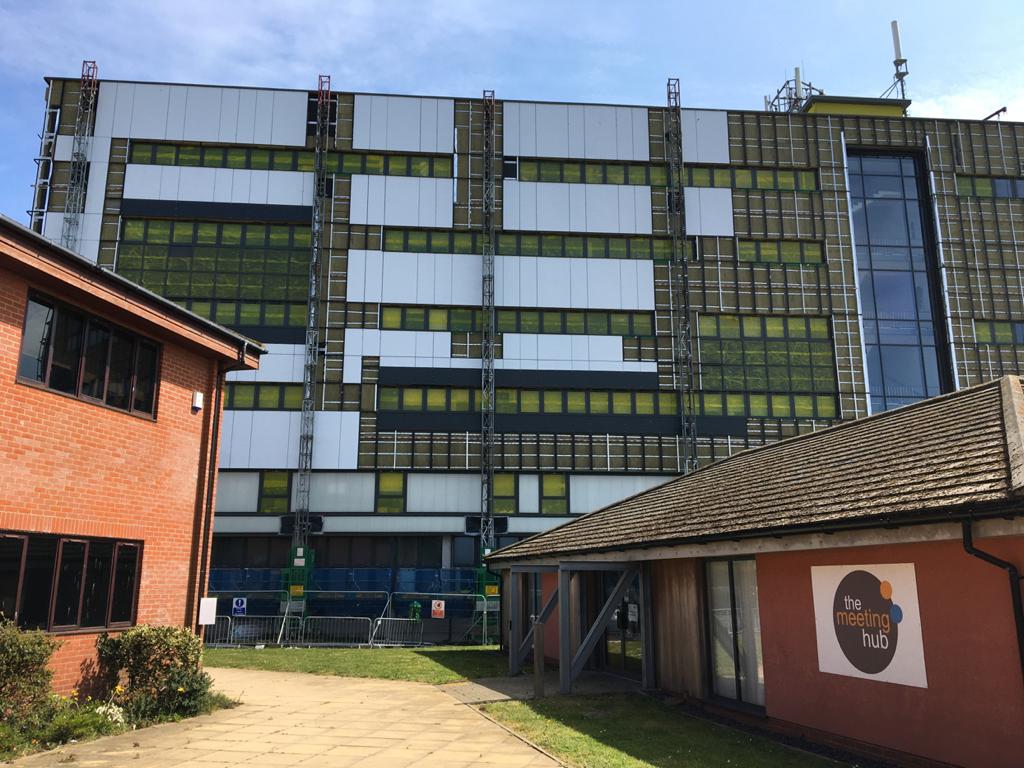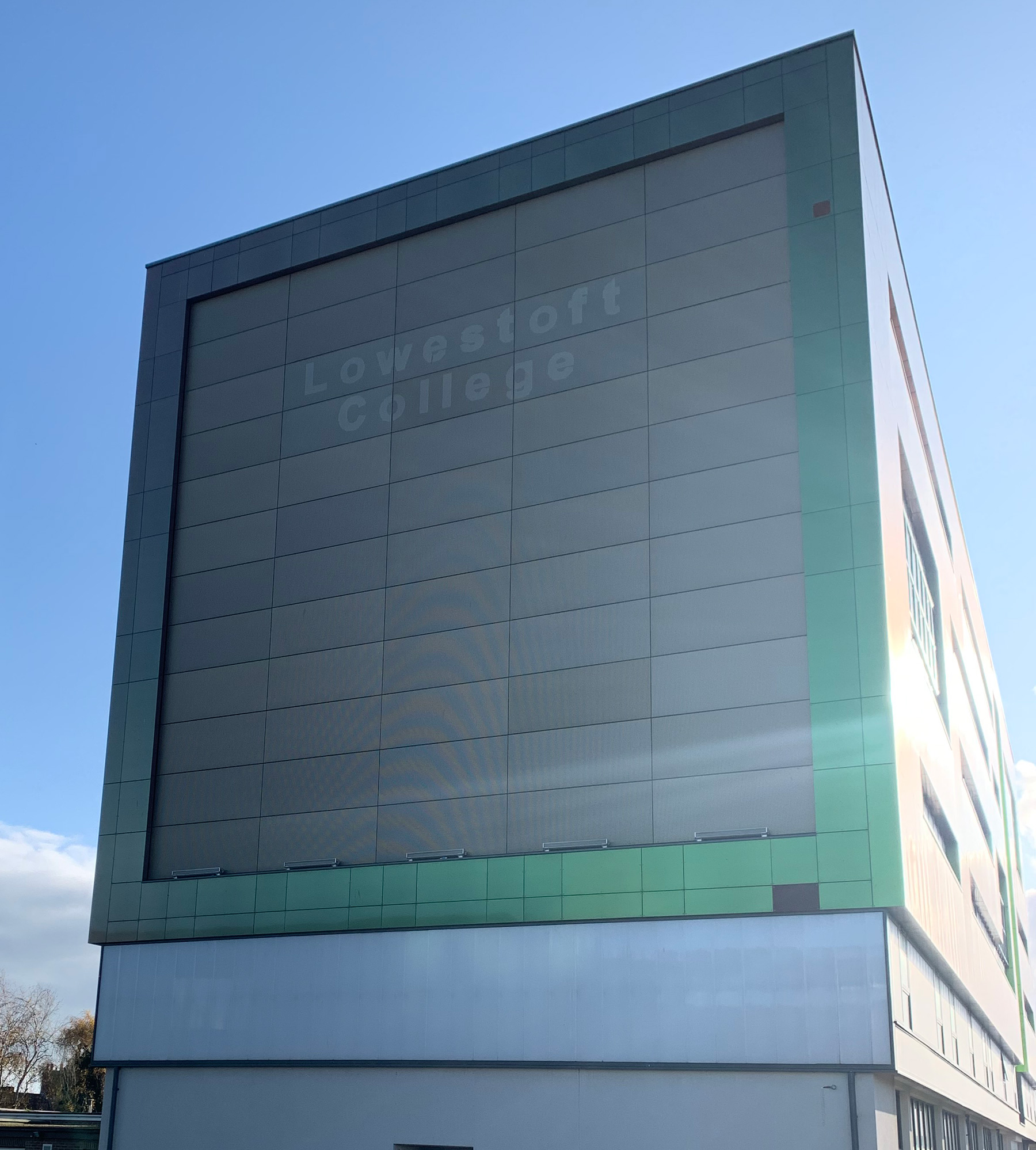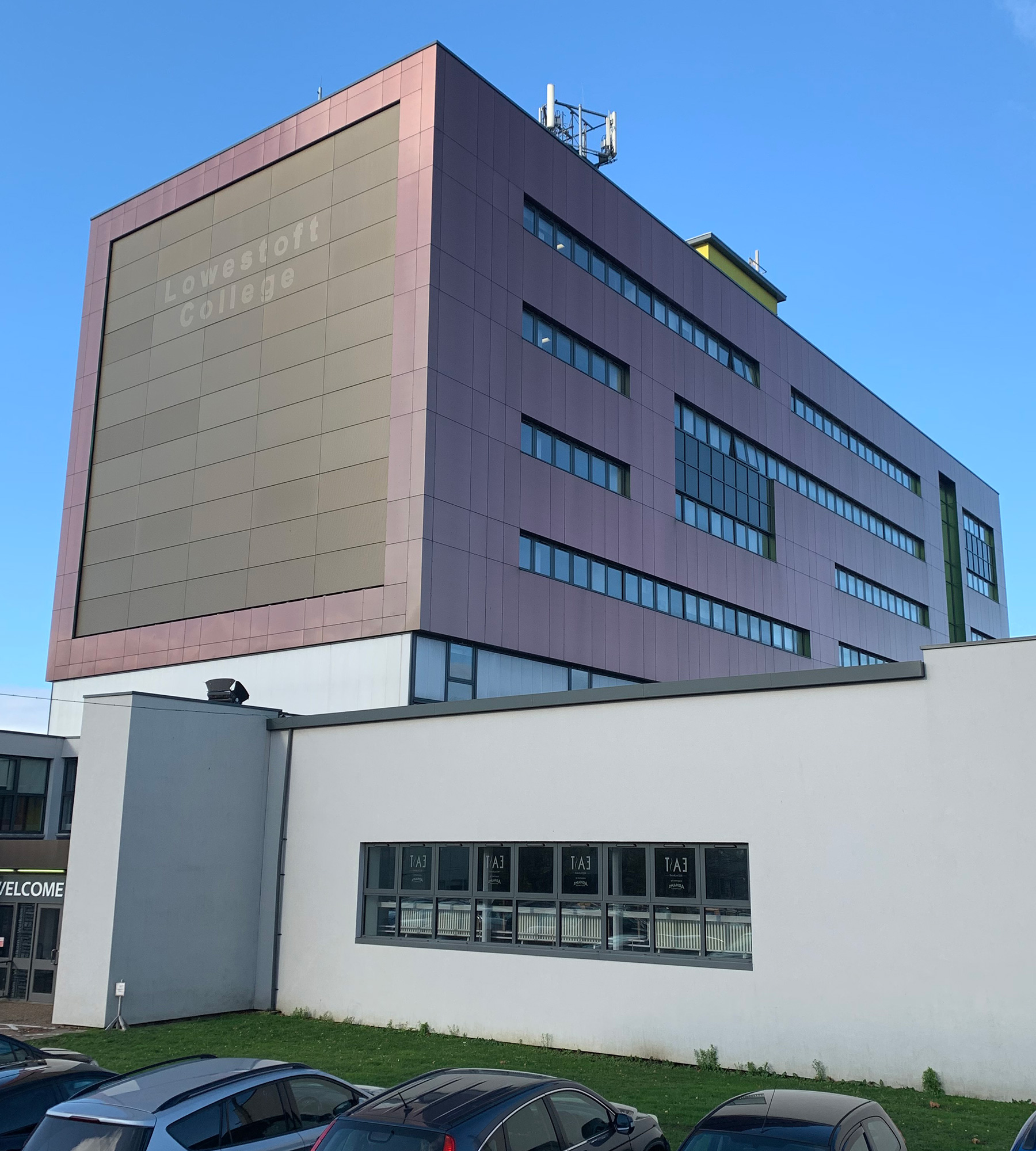THE IMPACT OF COVID-19
A Client's Perspective
In December 2019 East Coast College appointed design build facades to replace the existing combustible ACM cladding and insulation fitted to its Tower Main Teaching Block at its Lowestoft campus, and replace it with new insulation and cladding which meet current fire safety standards. design build facades’ team started on site in early February 2020, and the project is expected to be completed in the summer of 2020, several weeks ahead of the original programme.

The impact of COVID-19 on the project
A decision was taken on 23rd March 2020, the day after lockdown was announced, by the executive leadership team of East Coast College to allow design build facades to continue working on the project. This was based on design build facades’ reassurance to the College that, in line with government guidance, construction work could continue, especially external works, provided that projects were able to abide by Public Health England’s social distancing guidelines.
In addition, East Coast College received guidance from the Department for Education, who is funding the project, that there is no reason to discontinue essential fire-safety works provided that personal safety guidance such as hygiene measures and the avoidance of close personal contact could be adhered to. design build facades have put strict health and safety rules in place for site operatives to ensure that social distancing, handwashing and health screening are observed. Guidance was given to site operatives, which was reinforced and updated through regular toolbox talks.
The College expected that design build facades might face some supply chain issues that could cause a potential delay, due to the fact that builders’ merchants, waste recycling facilities and factories were closed immediately after the lockdown. However, design build facades were able to use their purchasing power and long-standing relationships with key suppliers to resolve any potential supply or delivery issues. All key suppliers have committed to staying open, especially the cladding manufacturer in Scotland, which is still operating and able to fulfil the order for this project. design build facades arranged with the College that most of the material could be delivered and safely stored in a warehouse, in order to significantly reduce the risk of the project grinding to a halt due to a lack of access to materials.
As a result, the COVID-19 outbreak has not had a detrimental effect on the project. In fact, the team are now ahead of schedule. Additional fitters have been diverted from other projects and the fact that they are able to work all hours without the constraints of a live College environment, combined with the excellent weather conditions during April, had in fact been beneficial to this project.
Just before Easter, all combustible ACM panels and combustible insulation have been removed from the building. As a result, the building could be deemed fire-safe, which is quite a watershed point in the project’s development. The installation of the new non-combustible insulation and new fire-stops is now underway.
In addition, detailed documentary photographic and video evidence was collated by d+b facades for sign-off by the College’s project manager, Building Control and Suffolk Fire & Rescue Service, who are not currently able to visit the site due to restrictions on movement. This gives the College confidence that the building meets the most stringent fire regulations.
The College’s executive management team and governors are keen for students to return to a fire-safe building at the start of the new academic year in September. That is now very likely to be the case.
In the immediate aftermath after the lockdown was announced, design build facades were able to provide reliable and assured guidance to the College that fire-safety projects were able to continue safely and confidently within government guidelines. They also, with very little notice, drew up health & safety guidance and a thorough training programme for their staff.
As a result, the project has been able to continue on-site, and good progress continues to be made. The lockdown period has not hampered progress on this project. To the contrary, not having to work on a live site with all the restrictions that entails, combined with excellent weather conditions this Spring, and being able to benefit from additional installers redirected from other projects, has resulted in the team being able to work faster than expected.
We are grateful to the design build facades team who have managed to pull out all the stops to ensure that this fire-safety project could continue safely and smoothly despite the very difficult conditions faced in the industry and across the whole UK. As a result, the project is on track to complete on time over the summer. That means that the new student cohort will be able to occupy a firesafe building when they return, and the campus will have a fresher and “new” appearance to start the new academic year.”
Background
The building was constructed in 1961 and comprises 5,300 sqm of mixed teaching space across most of the College’s curriculum areas. The building is 23m high from ground level and comprises six storeys. In 2014, ACM cladding was installed to extend the lifespan of the deteriorated concrete frame, improve energy efficiency and modernise the general appearance of the building, which is highly visible on the town’s skyline.
After the Grenfell Tower Fire tragedy, a panel of the cladding material was tested by BRE. The results showed that the ACM material used was of concern as it failed combustion tests for buildings in excess of 18m.
The College subsequently obtained funding from the Department for Education to remove and replace the flammable cladding and insulation, and replace it with new insulation and cladding which meet current fire safety standards, and future-proof it for potentially more stringent regulations.


Programme
The project is progressing well and is expected to be delivered slightly ahead of the programme, and comfortably within budget.
The contractual completion date is 11th September 2020, but despite COVID-19 and Building Controls’ requirement that all fire-breaks between the cladding envelope and the original subframe had to be replaced (a requirement not known about when the programme was originally agreed upon), the current target completion date that the project and site team are working to is 7th August 2020 – approximately a month ahead of schedule.
Some caution is advised because there are too many risks and uncertainties to commit fully to this earlier completion date at this stage. However, provided that site operatives continue to stay fit and well, and there are no issues with the manufacture and delivery of cladding panels, the project is on track to be completed comfortably before the start of the new academic year in September, regardless of whether the College reopens before then or not.
